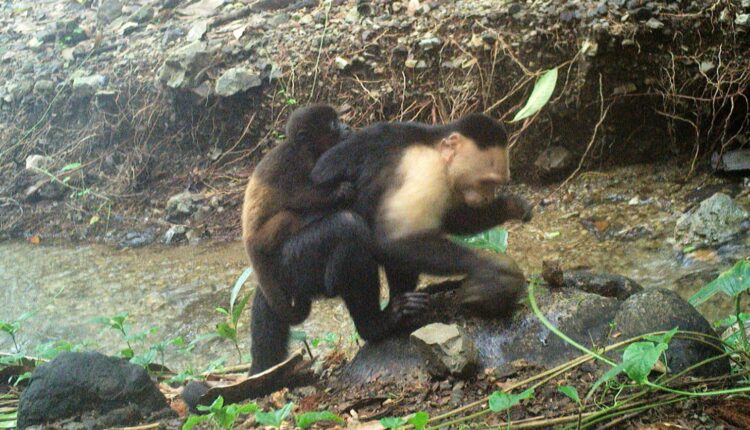A group of young male capuchin monkeys on Panama’s Jicarón Island have developed a bizarre and troubling behavior — abducting baby monkeys of another species and carrying them around for days without offering any care.
This startling behavior, described in a study published Monday in the journal Current Biology, was discovered by researchers who have been observing the capuchins since 2017. The group is already known for its intelligence and tool use, including cracking open hard nuts and shellfish with stones.
While reviewing months of video footage, Zoë Goldsborough of the Max Planck Institute for Behavioural Biology in Germany noticed something unusual: a young male capuchin was carrying a baby howler monkey.
“I combed through the footage and found four howler monkey babies had been carried,” Goldsborough said. One young male, nicknamed “Joker,” was seen with an infant as early as 2022.
“We came to the conclusion that it must be a single individual trying something new,” said Brendan Barrett, group leader at the institute. He noted that such experimentation isn’t rare among the inquisitive primates.
However, just five months later, additional videos revealed that Joker wasn’t alone. Four other young male capuchins were also observed carrying baby howler monkeys, bringing the total number of abducted infants to at least 11 over a 15-month period. The monkeys often carried the infants for up to nine days.
Despite initial speculation that the capuchins might be trying to adopt the infants, researchers saw no signs of caregiving or even play. Tragically, four of the babies were later found dead, and none are believed to have survived.
“The capuchins didn’t harm the babies, but they could not provide the milk the infants needed to survive,” Goldsborough explained.
The researchers remain unsure how the abductions occurred, especially given the difficulty of snatching infants from another species. However, they believe the behavior may stem from the monkeys’ curiosity and the lack of predators on the island, allowing them more freedom to explore and experiment.
While no definitive cause has been identified, the team speculates the unusual behavior may be linked to boredom or social experimentation among the young males.
The findings raise new questions about primate behavior and interspecies interactions — and leave researchers wondering what other surprises these intelligent island dwellers may reveal.



[…] strongly oppose the expansion of Israel’s military operations in Gaza,” the leaders of the three allied nations said in a joint statement, calling for an […]